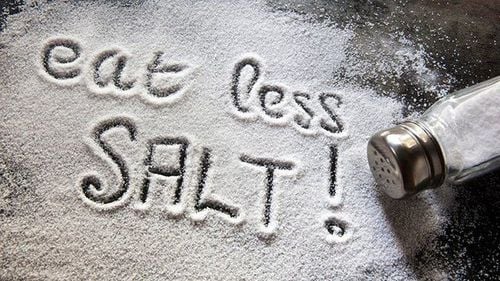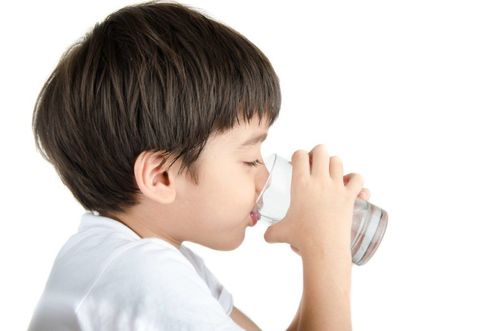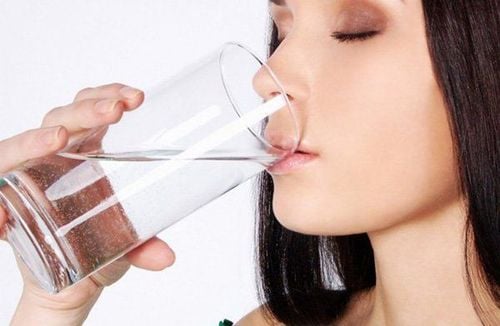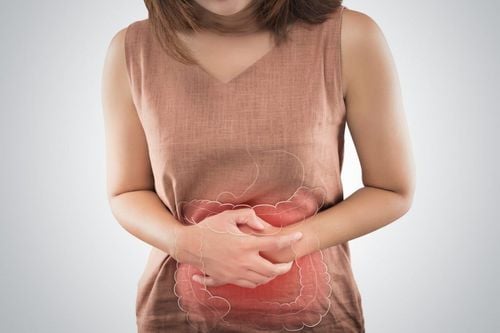This is an automatically translated article.
Obviously, water is a very important fuel source for the human body. Water makes up 45% to 75% of body weight and plays a key role in maintaining heart health, weight management, physical performance, and brain function. Many studies show that increasing your daily water intake can have many health benefits.
1. General health support
Drinking enough water is extremely important, because water is a necessary source of fuel for many body processes. In particular, this fluid helps regulate body temperature, transport nutrients, maintain brain function and enhance physical performance.
Not drinking enough water can have many negative effects, potentially causing nausea, fatigue, constipation, headaches and dizziness. Therefore, drinking 3 liters (100 ounces) of water per day can help the body meet fluid needs to maintain metabolic activities.
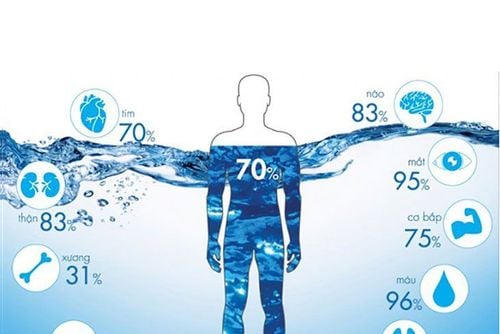
Cơ thể con người chiếm 70% là nước, do vậy nước đóng vai trò quan trong trong cơ thể
2. Supports weight loss
Increasing the body's water absorption has the effect of helping to lose weight. Drinking water right before a meal is especially helpful, as water helps promote feelings of fullness and reduce cravings.
A study in 24 people found that drinking 500ml of water before breakfast reduced calorie intake by 13%. Similarly, a small 12-week study found that drinking 500ml of water before each meal reduced calorie intake by 44% compared to a control group. Drinking water can also boost metabolism, thereby increasing the number of calories burned during the day.
3. Maintain skin health
Some studies show that drinking lots of water can help skin increase elasticity and become smooth.
A month-long study of 49 participants determined that increasing water intake by 2 liters per day improved skin aging, especially in those who typically drank less than 3.2 liters of water per day. day.
Another study in 40 older adults found that higher fluid intake could increase skin moisture levels and balance skin surface pH. The pH of the skin plays an integral role in maintaining the skin barrier. Prevents the risk of certain skin conditions.

Cung cấp đủ nước mỗi ngày giúp bạn có một làn da khỏe mạnh
4. Some other benefits
Drinking more water can also provide a number of other benefits, including:
Increased bowel movements. Many studies show that low water intake causes a higher risk of constipation. Therefore, drinking a lot of water can promote bowel movements and relieve constipation Prevent kidney stones. A review of 9 studies found a link between higher fluid intake and a lower risk of kidney stones. Research shows that drinking more water can reduce headaches caused by dehydration or dehydration Improve mood. According to one review, increasing water intake can support both brain function and mood, especially in children and older adults.

Uống nhiều nước giúp ngăn ngừa tình trạng sỏi thận
Enhance athletic performance. Dehydration can impair exercise performance, so rehydration after sports improves performance as well as re-hydrates during activity.
5. What is the right amount of water?
While drinking more water has been shown to support health, 3 liters of water per day may not be the right amount for everyone.
Currently, there are no official recommendations for general water intake. Water intake needs to be calculated based on several factors, such as age, gender and activity level.
However, there are recommendations for total water intake, which includes water consumed through all foods and beverages, such as plain water, fruits and vegetables. Total daily intake is about 2.7 liters for women and 3.7 liters for men.
Depending on different foods and beverages, some people may not need to drink 3 liters of water a day to meet their fluid needs. So, listening to your body and drinking water when you feel thirsty is one of the best ways to ensure that the body is adequately hydrated. In fact, most people are capable of meeting their daily needs by drinking water as soon as they feel thirsty.
However, some individuals, such as athletes and manual workers, may need more than 3 liters of water per day.

Có thể bổ sung nước cho cơ thể từ các loại trái cây, rau xanh
6. Drinking too much water is dangerous
Like all other foods and drinks, too much water can be dangerous.
Excessively balanced water intake can disturb the body's electrolyte balance, leading to hyponatremia, causing low blood sodium levels. Symptoms of low blood sodium levels include weakness, nausea, and vomiting. In some severe cases, excess water can lead to death.
For this reason, it is paramount to distribute your water intake in a balanced way during the day rather than drinking large amounts at once.
Customers can directly go to Vinmec Health system nationwide to visit or contact the hotline here for support.
Reference article: Healthline.com




